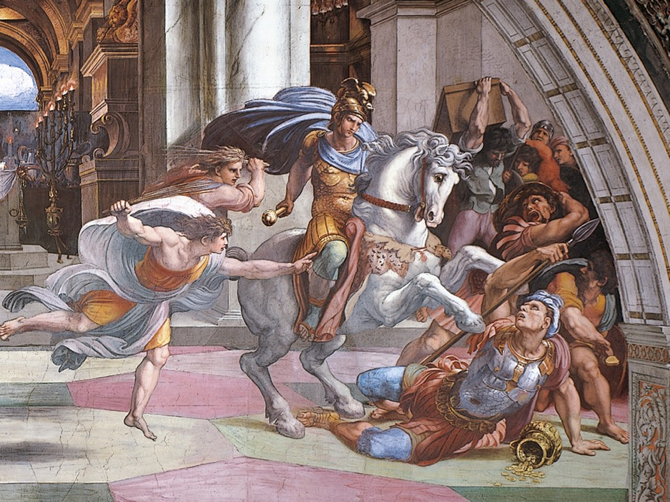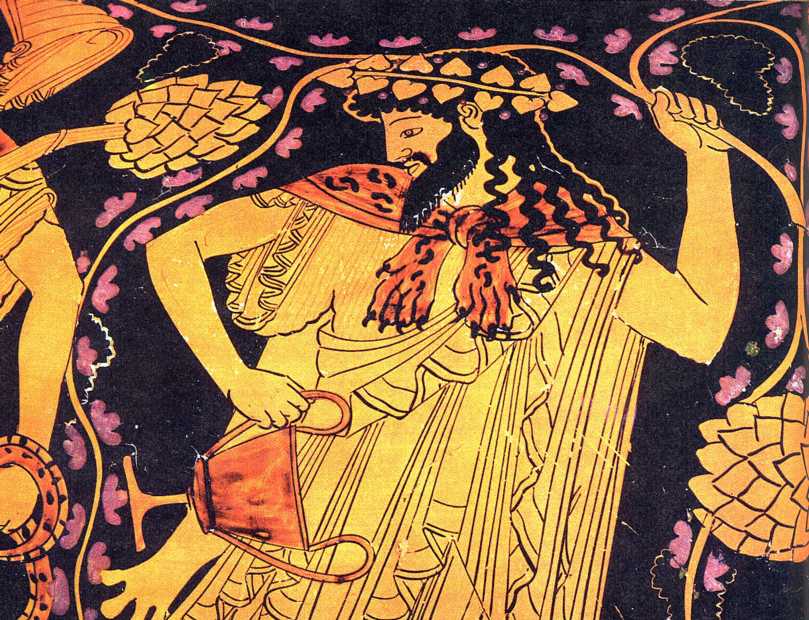Hanukkah is most identified with the menorah, which of course commemorates the so-called miracle of oil. Or does it...? A thread. 1/15
The earliest account of Hanukkah is 1 Maccabees. It is highly chronographical, and pretty slim on miraculous details. 2
This all changes with 2 Maccabees. Here we find all sorts of miracles, most famously the story of Heliodorus. But there’s no miracle of oil! The book ends by explaining that the festival commemorates the rededication of the temple. 3
Acc. to 2 Maccabees: carrying green palm branches and sticks decorated with ivy, they paraded around, singing grateful praises to Him who had brought about the purification of His own Temple. Everyone agreed that the Jewish nation should celebrate this festival each year." 4
Josephus is the earliest to associate Hanukkah with lights. First, like 2 Macc. he says: they were so very glad at the revival of their customs..they made it a law.. that they should keep a festival, on account of the restoration of their temple worship, for 8 days. 5
He continues: "& from that time to this we celebrate this festival, & call it Lights. I suppose the reason was because this liberty beyond our hopes appeared to us; & that was why the name given to that festival." It's associated with lights, but it's not clear to Josephus why! 6
At this point I should note that the association with light may, already, have to do with the Menorah, but it was to commemorate its relighting, the very fact that Jews could conduct the affairs of the temple, and not anything particularly miraculous about the relighting itself.7
Famously, the rabbis are quite mum about Hanukkah. There’s no tractate dedicated to it, though already the earlier rabbinic documents like the Mishnah mention a ritual to light candles on Hanukkah, without any elaboration. 8
A late Palestinian midrash (Pesiqta Rabbati) offers a non-miraculous reason: "Why do we kindle lights on Hanukkah, because when the [Hasmoneans] defeated the Greek empire...they entered the Temple & found therein eight iron spits, & they set them up & lit candles in them." 9
Only in the Babylonian Talmud do we find the miracle of oil:'When the Greeks entered the Temple, they defiled all the oils therein, & when the Hasmoneans prevailed, they found only 1 jug..but which was sufficient for 1 day only; yet a miracle occurred and they lit for 8 days.' 10
Some scholars have read this as an attempt by the rabbis to minimize the centrality of the Hasmoneans and the military victory in Hanukkah, emphasizing instead divine intervention and the temple itself. Others see Zoroastrian influence in the emphasis on fire. 11
Most likely, the miracle of oil emerged not out of any concerted effort, nor primarily from "foreign influence," but by the natural & organic shifting meanings of rituals. When you light candles every year to commemorate a moment, it accrues new meanings, sometimes miraculous! 12
As I mentioned in an earlier thread, the miracle of oil would be included in the Scroll of Antiochus, one of the primary versions through which many medieval Jews would learn about Hanukkah. 13 https://twitter.com/Simcha_Gross/status/1337387539515265024?s=20
Interestingly, the miracle of oil is NOT mentioned in the prayer "On miracles" recited on Hanukkah, which emphasizes the military victory and rededication of the temple. The prayer is 1st attested in medieval Babylonian works. Was there disagreement about the miracle of oil? 14
I close by noting that the tune of "On miracles" that is regularly used today was composed... by my father's college band.
Enjoy some groovy 70s guitar!
Fin.
Enjoy some groovy 70s guitar!
Fin.

 Read on Twitter
Read on Twitter



